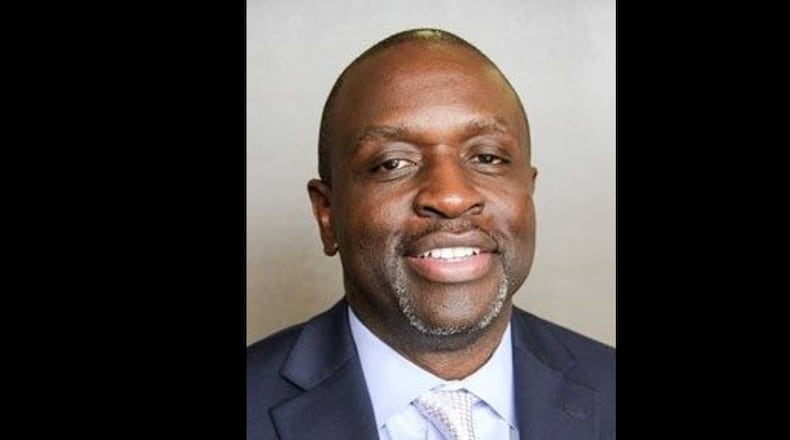The first leader of what was supposed to be Georgia’s major initiative for struggling schools is leaving the job amid a whistleblower investigation, possibly signaling the end of the program.
In a brief meeting Friday, the Georgia Board of Education accepted the resignation of Eric Thomas and sent an internal audit of his office to the state inspector general for further review.
Thomas, who has been interviewing for educational leadership jobs in other states for months and was in Madison, Wisconsin on Thursday for talks about leading that district, said in a written statement to The Atlanta Journal-Constitution that his office followed “all established protocols and policies.”
Thomas was the first leader of what was billed as a transformative plan to improve Georgia's worst-performing schools, which then Gov. Nathan Deal called "chronically failing." The plan, dubbed the "First Priority" Act to telegraph its importance, passed with bipartisan backing. It established a new office accountable only to the state school board despite the wishes of state school Superintendent Richard Woods who wanted the Chief Turnaround Office under his control.
Thomas, hired away from the University of Virginia in late 2017 after a months-long search, consistently reported a lack of collaboration between his fledgling office and Woods’ education department.
In his statement to the AJC, Thomas described the relationship between his office and Woods’ as “hostile.” His statement questioned the neutrality of the education department’s audit, noting that he was not interviewed for it and documents he offered were not accepted.
After Brian Kemp was elected to succeed Deal, the relationship between the superintendent and the governor's office improved. Woods and Kemp traveled the state to hear from teachers and superintendents, with Kemp describing their offices' interactions as "fantastic" during a trip to South Georgia in June.
Thomas had been looking for a new job for months by the time the existence of the internal audit, reportedly triggered by whistleblower action, was revealed this fall.
That audit was concluded this week, but remains under seal, since the referral to the state makes it part of an ongoing investigation, education department spokeswoman Meghan Frick said.
Her explanation for how the investigation got started: "We received multiple complaints about issues in the chief turnaround office, so Superintendent Woods directed our internal auditors to open an internal investigation." She did not elaborate on the nature of those issues, but the AJC previously reported that the education department received allegations including discrimination, conflict of interest and misuse of funds.
The Chief Turnaround Officer had a clear goal: help Georgia’s most troubled schools — those consistently in the bottom 5% on the annual state report card — rise up from the bottom. His first annual budget in fiscal year 2018 exceeded $3 million. It was cut the following year and now Kemp wants to slash it to a tenth of that amount.
>>RELATED: Once a top issue, money short for Georgia’s ‘priority’ students
Those cuts and the state education board’s decision to replace Thomas with an acting chief who will retain her position within the state education department may effectively kill the program. (Stephanie Johnson, head of the education department’s Office of School Improvement, will carry dual titles.)
“They’re closing it down, one way or another,” said Jimmy Stokes, the chairman of a state advisory committee for the turnaround office. “I think we have seen an end to the CTO program one way or another, either by a change to the budget structure or by Eric Thomas leaving.”
Thomas, who had already met with the Madison school board this week, presented himself and his plans to a small audience at a high school there, then spoke with reporters afterward.
When asked about tensions back in Atlanta, he told the Wisconsin State Journal that "the dynamic or the relationship between the chief turnaround office and the state superintendent has not been very good." Thomas attributed it to "politics."
About the Author
Keep Reading
The Latest
Featured


